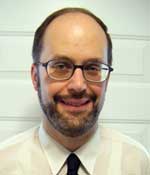Martin E. Poitzsch
Biography:
 Martin Poitzsch holds an A.B. from Washington University in St. Louis and a Ph.D. from Harvard University. He also spent three semesters at the Technische Universität Berlin as a Rotary Scholar and an extended internship with Siemens AG. After Harvard, he was an NRC Post Doc at NIST in Boulder, CO, where he constructed the first liquid helium temperature RF ion trap for stored-ion frequency metrology. In 1994, he joined Schlumberger’s Logging While Drilling engineering department in Houston, where he worked as an R & D physicist on low-frequency electromagnetic imaging, navigation, and nuclear measurements. From 1996 to 2001, he led the NMR While Drilling product development team and then the Magnetic Resonance (both product engineering and manufacturing) department in Houston. From 2002 to 2004, he was the Wireline R & D Portfolio Manager based in Paris and Houston, overseeing over $100M in physics-related “downhole” measurement technology projects in eight centers around the world for Schlumberger. Since 2004, he has been the Research Director for Sensor Physics at SDR in Ridgefield, CT, and now Cambridge, MA. Martin’s department consists of about 50 researchers working on a wide range of experimental physics-based measurement technologies being evaluated for possible exploitation as geophysical/petrophysical reservoir probes. His work also involves extensive collaboration with Schlumberger engineering centers and with external partners, mainly at universities, where his department is supporting almost two dozen exploratory research collaborations.
Martin Poitzsch holds an A.B. from Washington University in St. Louis and a Ph.D. from Harvard University. He also spent three semesters at the Technische Universität Berlin as a Rotary Scholar and an extended internship with Siemens AG. After Harvard, he was an NRC Post Doc at NIST in Boulder, CO, where he constructed the first liquid helium temperature RF ion trap for stored-ion frequency metrology. In 1994, he joined Schlumberger’s Logging While Drilling engineering department in Houston, where he worked as an R & D physicist on low-frequency electromagnetic imaging, navigation, and nuclear measurements. From 1996 to 2001, he led the NMR While Drilling product development team and then the Magnetic Resonance (both product engineering and manufacturing) department in Houston. From 2002 to 2004, he was the Wireline R & D Portfolio Manager based in Paris and Houston, overseeing over $100M in physics-related “downhole” measurement technology projects in eight centers around the world for Schlumberger. Since 2004, he has been the Research Director for Sensor Physics at SDR in Ridgefield, CT, and now Cambridge, MA. Martin’s department consists of about 50 researchers working on a wide range of experimental physics-based measurement technologies being evaluated for possible exploitation as geophysical/petrophysical reservoir probes. His work also involves extensive collaboration with Schlumberger engineering centers and with external partners, mainly at universities, where his department is supporting almost two dozen exploratory research collaborations.
Statement:
I believe that my experience gives me a very comprehensive understanding of the whole continuum from fundamental research to long-term applied research to very near-term engineering applications. I have also been involved in a large amount of technical recruiting for the past 14 years, having been responsible for filling engineering, technician, scientist, and post-doctoral researcher positions, as well as technical managerial positions. I think that I am therefore very knowledgeable about workforce issues from the points of view of both the industrial and academic employers and the young or mid-career scientists.
I am also very willing and able to contribute on issues relating to university-industrial relations and collaboration and on the technical challenges of energy supply and global climate change.
